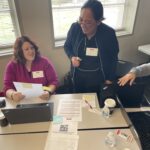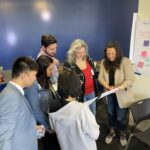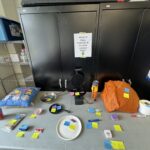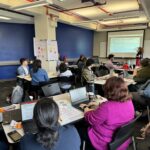Empowering K-12 Educators to use Data Science to Elevate Student Learning
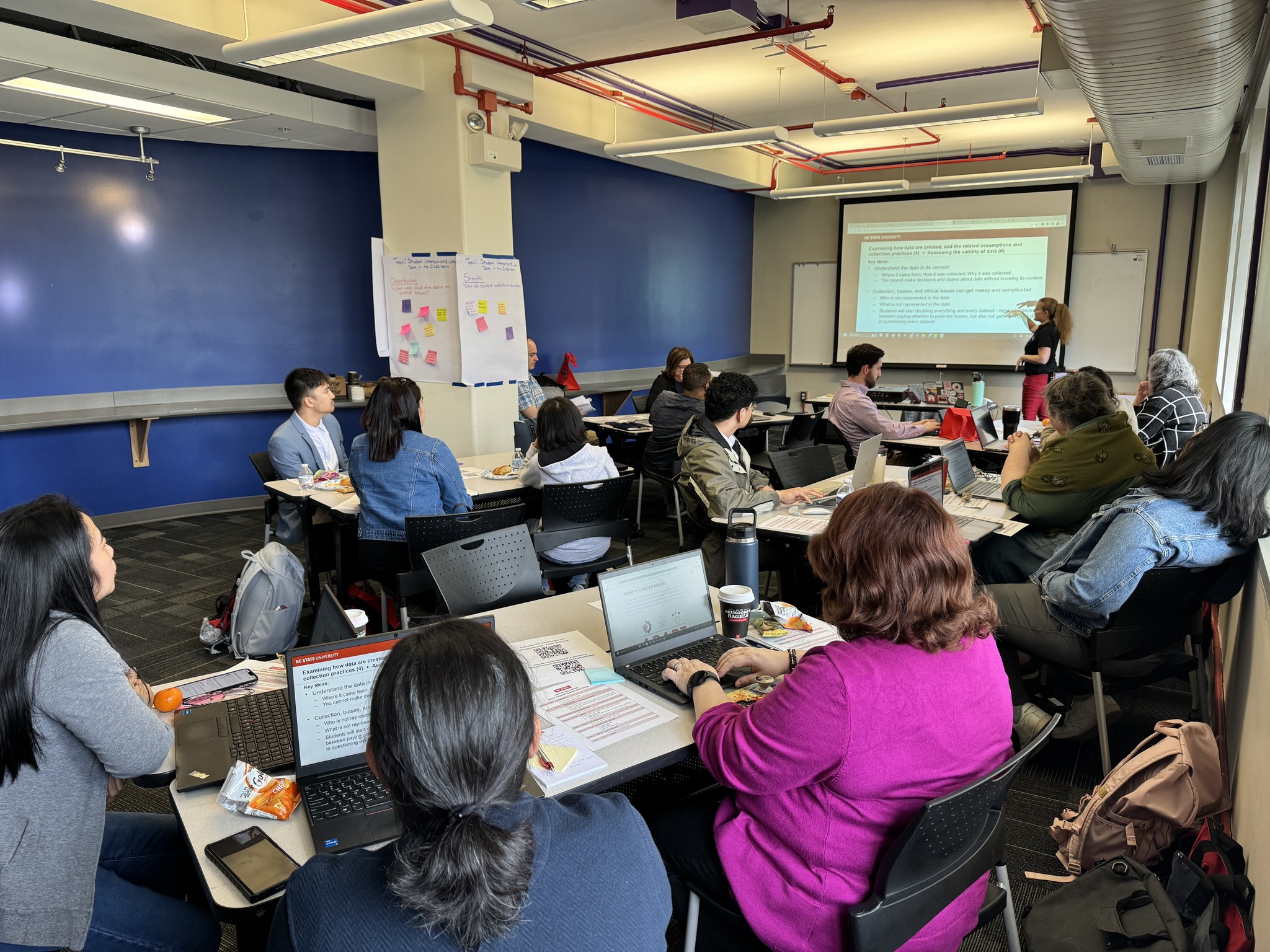
With data science becoming an increasingly important industry in today’s technologically advanced world, it is important that opportunities in data science are accessible to all students, so that they can build foundational skills and data literacy.
Recognizing this importance, K-12 educators are embracing innovative approaches to enhance their teaching — and the DSA has begun providing them with professional development opportunities.
On March 16, the DSA and The Science House hosted “Let’s Keep it Real: Real Teaching with Real Data,” a workshop for K-12 educators on how to train their students to work with messy data and guide them on best data practices. This workshop also aimed to give educators the opportunity to collaborate on developing data science lessons and connect with colleagues from other schools and districts.
Taryn Shelton, K-12 Data Science Program Coordinator for the DSA and The Science House, says the event filled a need for educators who want more hands-on experience with raw data.
“When you [an educator] are given raw data sets, a lot of times you don’t know what to do with them, so you don’t get to work on them with your students,” she said. “It’s a missed opportunity for students to understand the whole research process and for them to really understand how data originates, how you get from collection to analysis and how to draw conclusions.”
Shelton created two lessons for this workshop and utilized datasets provided by the NC State Center for Human Health and the Environment and the NCSU Center for Environmental and Health Effects of PFAS.
The data provided was related to PFAS water contamination collected from several waterways along the Cape Fear River. PFAS stands for Per- and polyfluoroalkyl substances, which are a large group of environmentally persistent man-made chemicals used in industrial applications and commercial household products.
For the other lesson, educators looked at data from the NC State Center for Human Health and the Environment’s 2020 and 2021 NC surveys, so they could learn how to perform in-depth analysis on survey data and teach this concept to their students.
Jennifer Milton, a SparkLab Leader for Cumberland County Schools, attended the workshop because, as a part of SparkNC, she is responsible for co-designing and delivering in-person learning experiences to high school students. Also, she is responsible for partnering with other SparkLab Leaders and industry experts to deliver blended and remote learning experiences to students across the SparkNC interdistrict network. Topics for these learning experiences include data analytics, cybersecurity, cryptography, etc.
“A lot of our topics now deal with data analytics but maybe in a way that doesn’t necessarily incorporate into a science classroom,” she said. “I’m really interested in bringing in some of the traditional subjects into what we are doing.”
From the workshop, Milton emphasized her newfound understanding of crafting effective data visualizations, and the need to tailor them to different audiences.
“So by giving us different parts of the graph, I was frustrated because I didn’t understand … This sheet with just numbers all over it was very intimidating to look at and go ‘How do I make sense of that?’ And realizing that for the kids … I can’t just hand them a graph and assume they understand how to interpret it,” she said.”
Participants left with a better sense of what data science is and how to better incorporate different lessons using data science concepts. The K-12 Outreach program is an initiative with the DSA and the Science House that hopes to host more professional development opportunities for K-12 educators in the upcoming months. Not just with science related subjects, but with a goal to bring data science into all core subject areas across the state of North Carolina.
- Categories:
